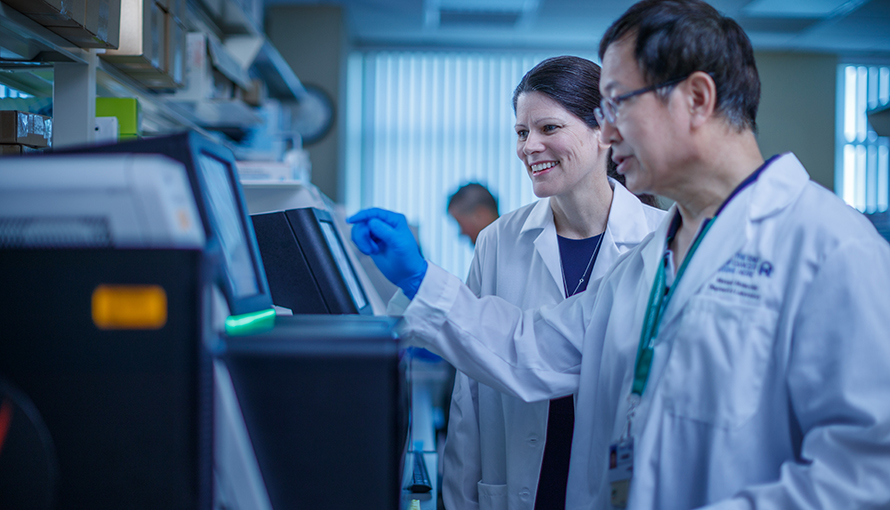
The Moffitt STAR™ Solid Tumor Assay as a Tool to Guide Clinical Decisions
With the advent of “next generation sequencing (NGS)” technology, otherwise known as “massively parallel sequencing” or “comprehensive genomic profiling” (CGP), a large amount of genetic information can be derived from a small amount of cancer tissue. Cancer specimen testing has advanced from testing of just one spot on one gene at a time to simultaneous comprehensive testing of hundreds of genes for clinically important and less well understood changes at a historically low cost.
In February, 2018, the Morsani Advanced Diagnostics Laboratories at the Moffitt Cancer Center launched the Moffitt STAR™ (Solid Tumor Actionable Result) panel and since then over 800 patients have received testing with this assay.
Moffitt STAR™ is essentially an “All in One” test that provides information about well-known clinically actionable changes and also detects other genetic changes that might not be actionable immediately, but could be helpful later. This panel is based on the Illumina TruSight™ Tumor 170 (TST170) assay which covers 170 genes that are commonly implicated as drivers in solid tumors. The assay evaluates both DNA and RNA and detects many different types of gene changes (small variants, large deletions and insertions, amplifications, fusions, and splice variants).
The launch of more comprehensive genetic testing was much needed because of the increasing availability of FDA-approved targeted therapies and increase in clinical trials that require genetic results for enrollment. Targeted therapies can be better for patients than other therapies if the cancer they have harbors a genetic change that matches the targeted therapy. These targeted therapies include FDA-approved therapies for lung cancers with EGFR, BRAF, ALK, ROS1, and NTRK genetic alterations. Some of these genetic alterations, such as NTRK gene fusions, only occur rarely and there often is not enough tissue or assays available to test for such rare mutations one at a time. However, with Moffitt STAR™, even such rare changes can be looked for with the same tissue tested for more common changes. The Moffitt STAR™ assay now allows screening of patient tumors comprehensively for genetic changes in 170 genes in a single test using a relatively small amount of tissue.
